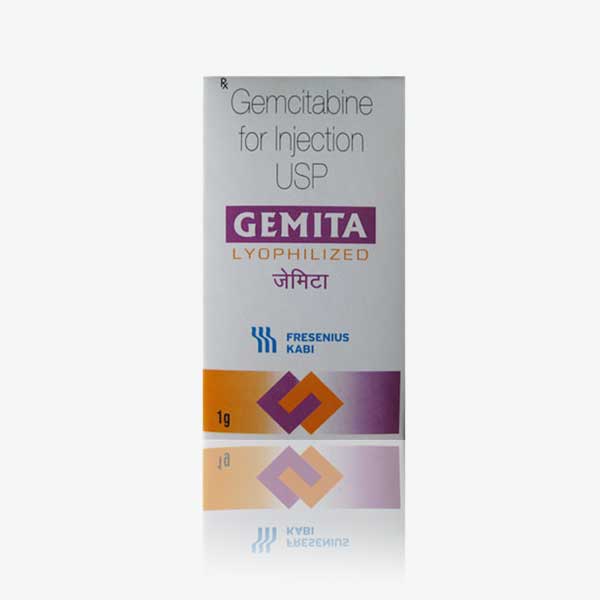
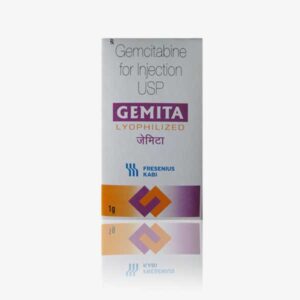
Buy Gemita : Gemcitabine 1gm/1000 Mg Injection Online
$125.55
Brand Name : Gemita
Composition : Gemcitabine
Manufactured by : Fresenius Kabi
Strength : 1000 mg
Form : Injection
Packing : Pack of 1 vial
Prescription Required *

Buy Gemita : Gemcitabine 1gm/1000 Mg Injection Online
$125.55
- Description
- Reviews (0)
Description
Gemita, with the generic name Gemcitabine, is a chemotherapy medication used in the treatment of various types of cancer. It is a nucleoside analogue that interferes with the growth and spread of cancer cells in the body. Gemita is commonly prescribed for several cancers, either alone or in combination with other chemotherapy drugs. Here is a detailed description:
1. Mechanism of Action:
- Nucleoside Analogue: Gemcitabine is a synthetic nucleoside analogue of deoxycytidine. It is incorporated into the DNA of rapidly dividing cells during the S-phase of the cell cycle, leading to termination of DNA chain elongation and inhibiting DNA synthesis.
2. Indications:
- Pancreatic Cancer: Gemita is widely used in the treatment of pancreatic cancer, either as a single agent or in combination with other chemotherapy agents.
- Non-Small Cell Lung Cancer (NSCLC): It is also indicated for the treatment of advanced or metastatic non-small cell lung cancer, typically in combination with other drugs.
- Breast Cancer, Bladder Cancer, and Others: Gemcitabine may be used for various other cancers, including breast cancer and bladder cancer, depending on the specific treatment plan prescribed by the healthcare provider.
3. Administration:
- Intravenous Infusion: Gemita is typically administered as an intravenous infusion, meaning it is delivered directly into the bloodstream over a specific period. The infusion is usually given in a clinical setting under the supervision of healthcare professionals.
4. Dosage:
- The dosage of Gemita can vary based on the type of cancer being treated, the patient’s overall health, and whether it is being used in combination with other chemotherapy drugs.
5. Effectiveness:
- Clinical studies have shown that Gemcitabine can be effective in slowing or stopping the growth of cancer cells in various types of cancer.
6. Safety Profile:
- Common side effects may include nausea, vomiting, fatigue, and lowered blood cell counts. Close monitoring and supportive care may be necessary to manage side effects.
7. Monitoring:
- Regular monitoring of blood cell counts and liver function may be required during Gemita treatment to assess its impact on the patient’s health and to make any necessary adjustments.
8. Contraindications:
- Gemita is generally contraindicated in individuals with a known hypersensitivity to Gemcitabine or any of its components.
9. Precautions:
- Due to potential myelosuppression (bone marrow suppression), caution is advised in patients with pre-existing blood disorders or compromised bone marrow function.
Gemita (Gemcitabine) is an essential component in the treatment of several cancers and plays a crucial role in the management of these conditions. The decision to use Gemita, as well as the specific treatment plan, should be made by qualified oncologists based on individual patient factors and the characteristics of the cancer being treated.
Be the first to review “Buy Gemita : Gemcitabine 1gm/1000 Mg Injection Online” Cancel reply
Related Products
Buy Bendit : Bendamustine 100 Mg Injection Online
Total Sales: 0
SKU: 936597
Buy Clokeran : Chlorambucil 5 Mg Tablets Online
Total Sales: 0
SKU: 858738
Buy Erlocip : Erlotinib 150 Mg Tablets 30'S Online
Total Sales: 0
SKU: 691594
Buy Erlonat : Erlotinib 150 Mg Tablets 30'S Online
Total Sales: 0
SKU: 942762
Buy Tarceva : Erlotinib 150 Mg Tablets 30'S Online
Total Sales: 0
SKU: 367144

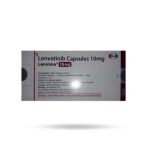

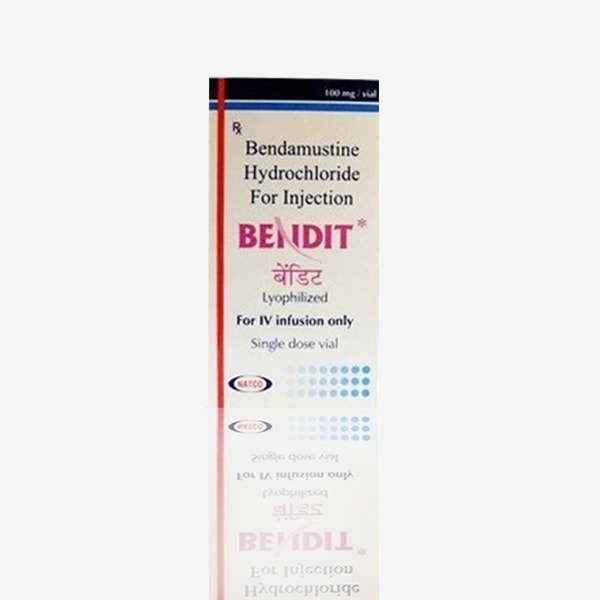
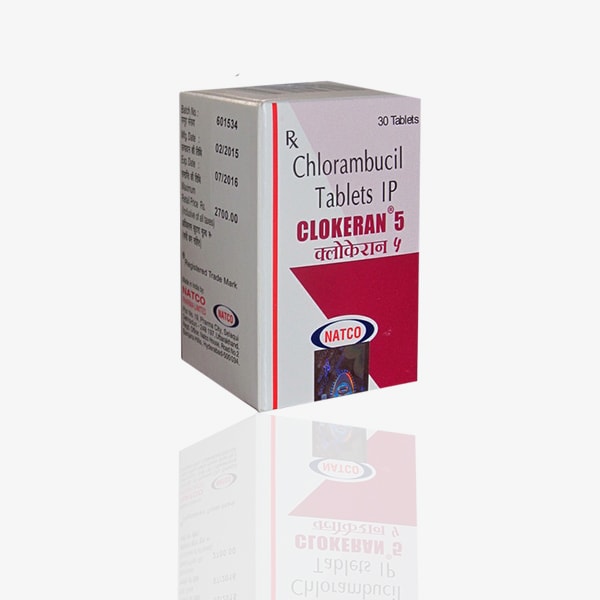
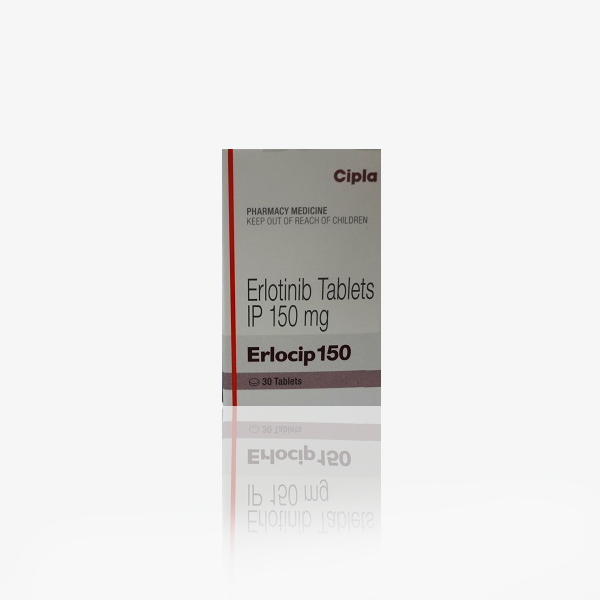


Reviews
There are no reviews yet.